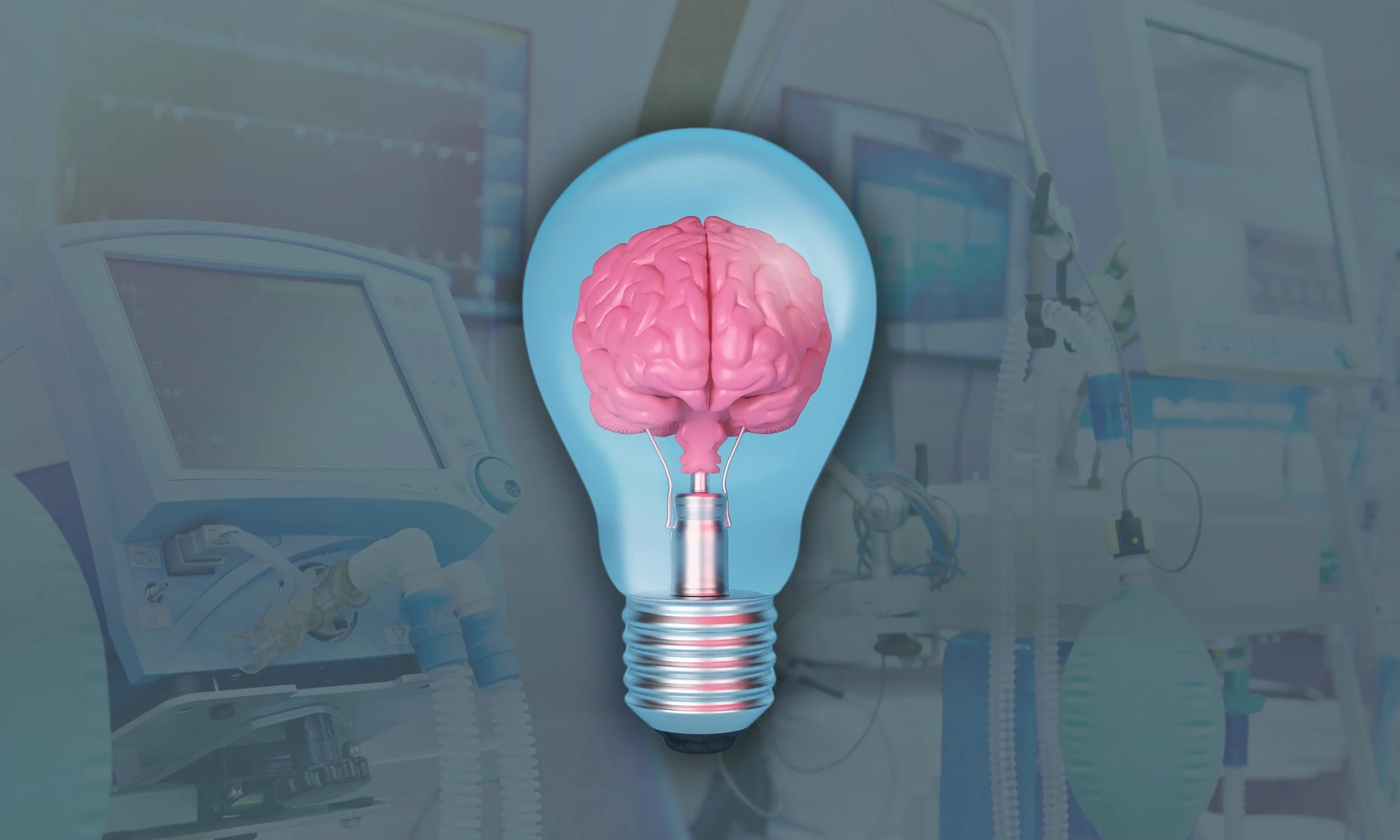Can ketamine potentially be used in the treatment of chronic post-traumatic stress disorder (PTSD)? Recent research results are very promising, especially because PTSD has a history of being difficult to treat with traditional methods. In this article we are going to explore the groundbreaking research supporting this therapy, as well as related questions such as, who should and who shouldn’t try ketamine infusion treatments for PTSD.
Repeated Ketamine Infusions Showed A Rapid, Significant Reduction in PTSD Symptoms
In a recent article published in the American Journal of Psychiatry (January 2021), Dr. Feder and her colleagues at the Icahn School of Medicine in Mount Sinai wanted to assess the efficacy of ketamine in PTSD (1). What was interesting about this study was they took patients who had chronic PTSD - on average for about 15 years. The participants reported taking various antidepressants and other medications for their challenges. The researchers randomized the group of 30 people and blinded them to either receive intravenous ketamine or intravenous midazolam.
They used midazolam as an “active placebo,” meaning this is a medicine that would cause some effect for the recipients versus normal saline. The researchers gave the study participants a series of six treatments over a period of two weeks.
The results showed that the patients who received the IV ketamine had about a 50% reduction in their PTSD scores. In addition, many of the patients had depression in combination with their PTSD, and their depression scores decreased as well. The researchers saw no serious adverse effects in the patient population receiving IV ketamine.
What's important about this study is that it's actually the first randomized, double-blinded scientific study comparing IV ketamine versus placebo. The only other study that was published before was also done by the Dr. Feder but they only did one ketamine infusion treatment (2), whereas in this study they did a series of six treatments.
From this study we can conclude that some patients receiving multiple intravenous ketamine treatments over a period of two weeks may be an effective and rapid treatment for PTSD symptoms. This is important because PTSD can be quite difficult to treat and causes profound distress in our patients' lives.
Want to learn more about the research, how ketamine works to treat PTSD, and more? If so, read our What You Need To Know About Ketamine About PTSD blog post.
How Do I Know If I Should Try Ketamine For PTSD?
Each person facing PTSD should ideally be taken on a case-by-case basis as each person’s past events, life story, and medical history is unique. On that note, there are a myriad of reasons we believe a person should consider ketamine for PTSD, but here are three:
You are not experiencing relief from current or traditional treatments & ready to try something that works. Currently the only FDA approved treatments for PTSD are paroxetine and sertraline. “Off-label” treatments are benzodiazepines (aka anxiolytics), mood stabilizers, and atypical antipsychotics and are also traditionally used. While these have a long history of use, many people do not find relief or improvement of their PTSD symptoms. As the research study above shows, when other treatments may not be as effective, ketamine may help dramatically reduce unwanted PTSD symptoms.
You are tired of side-effects from traditional treatment. As mentioned before paroxetine and sertraline (the only FDA approved medications for treating PTSD) are both selective serotonin reuptake inhibitors (SSRIs). These medications can cause side effects like nausea, indigestion, diarrhea, loss of libido, or anorgasmia.
You are open to having a psychedelic experience to support PTSD recovery. There is growing research behind the use of MDMA and other psychedelic medicines to treat PTSD. Part of the idea behind this is that a negative experience caused a disconnection resulting in PTSD, so what if an equally profound but positive experience could occur to reverse or transform the PTSD? While there is mostly research outside of the ketamine space regarding this, psychedelic states have been reached with ketamine and ketamine is the only legal psychedelic available at this time.
When Should I Not Try Ketamine For PTSD?
Although ketamine can be a potentially effective and life-transforming treatment, it isn’t for everyone. Let’s explore a few reasons why you shouldn’t try ketamine for your PTSD
You have an uncontrolled blood pressure or heart condition. While ketamine is historically a very safe drug, it can increase your blood pressure as well as make the heart work harder. If your blood pressure or heart condition is not controlled, adding a ketamine treatment could possibly make your health worse. Now this doesn’t mean you could never get a treatment, but you would want to explore this option in conjunction with your cardiologist or primary care doctor. Learn more about seven medical conditions that don’t mix well with ketamine at our blog.
You have a history of schizophrenia, active delusions or hallucinations. Ketamine can induce non-ordinary states of consciousness aka psychedelic experiences. Ketamine is known as a schizophreno-mimetic. This is a medication that can cause an individual to disconnect from reality, and if you are already in a state like this, using ketamine could push someone into a psychotic episode. Given this possibility, we don’t recommend ketamine to anyone facing this.
You are actively dealing with substance use disorder. For many individuals dealing with PTSD, they have an associated substance use disorder. Although some research supports ketamine as a treatment for substance use disorder, treatment with ketamine could complicate the situation in the form of numbing or escaping from facing things that come up during the ketamine infusions (like repressed memories) or actual interference with the effectiveness of the treatment (like if benzodiazepines or alcohol is currently being used). At this time we recommend addressing the substance use disorder first, before trying ketamine.
Related Questions:
Is it okay to undergo ketamine infusions if you are taking benzodiazepines?
While many people are treated with benzodiazepines to treat the anxiety associated with PTSD, this type of medication can potentially decrease the effectiveness of the ketamine infusions. However, it is never safe to completely stop benzodiazepines simply to insure a more effective ketamine experience. Adjustments of your benzodiazepines should always be done under the guidance of the physician who has prescribed them to you. There are clinics where this class of medications are given to minimize the dissociative effect of the ketamine experience, however we believe this dissociative non-ordinary state is key to your transformative healing.
What kind of experiences does one experience during a ketamine infusion?
Each experience is different from person to person, and even from infusion to infusion for the same person! From what our patients have shared with us, some experience happy warm feelings, connection to the universe, and even have had near-death like experiences.
Dive more into this topic at What Does A Ketamine Infusion Feel like blog post.
What Should I Do to Prevent or Minimize having A “scary” experience during a ketamine infusion?
The key to having a the best possible experience during a ketamine infusion is to prepare your mind going into the infusion. Being mindful of what you watch and consume in the days before the infusion can help a lot. Also what is key is to go to a clinic where you feel safe and supported. Doing this will allow you to know that whatever you may face during the infusion you can be confident to have someone there to support and hold space for you.
We go deeper into preparing for a ketamine infusion in our blog. Check out How To Prepare For And Integrate From A Ketamine Infusion blog.
References:
1. Feder A, et al. A Randomized Controlled Trial of Repeated Ketamine Administration for Chronic Posttraumatic Stress Disorder. Am J Psychiatry. 2021 Jan 5:appiajp202020050596. doi: 10.1176/appi.ajp.2020.20050596. Epub ahead of print. PMID: 33397139.
2. Feder, Adriana, et al. “Efficacy of Intravenous Ketamine for Treatment of Chronic Posttraumatic Stress Disorder.” JAMA Psychiatry, vol. 71, no. 6, 2014, p. 681., doi:10.1001/jamapsychiatry.2014.62.















Learn how ketamine therapy affects PTSD, when it may worsen symptoms, and how alternatives like the stellate ganglion block can offer relief.